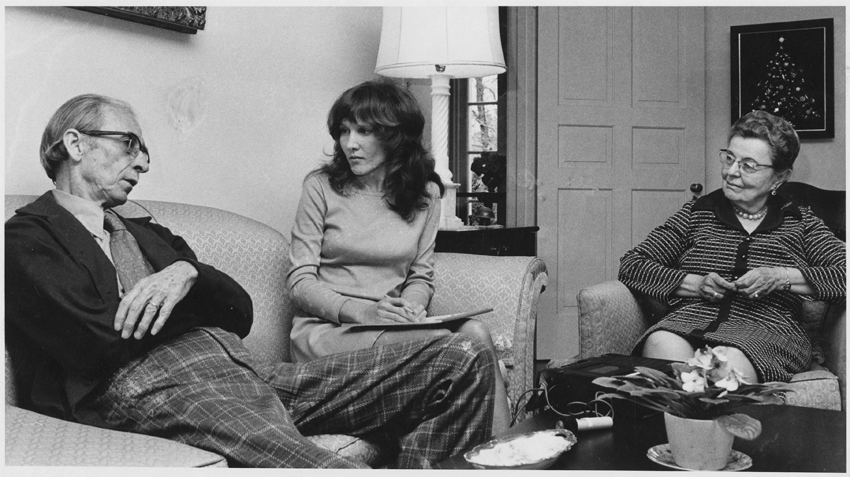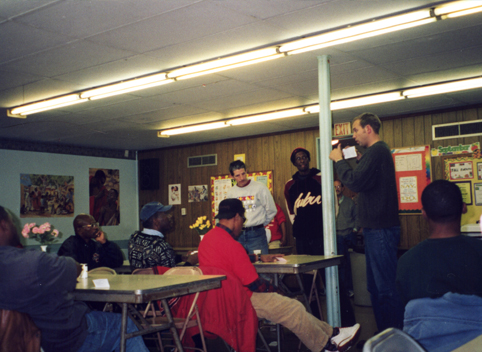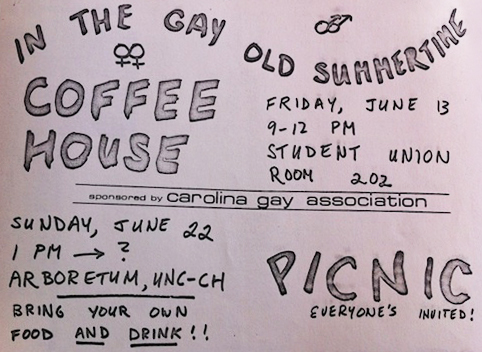Meet the Southern Oral History Program, our colleagues at the Center for the Study of the American South, UNC-Chapel Hill.
From its founding in 1973, the Southern Oral History Program has explored the history and culture of the American South by talking to its activists, politicians, educators, laborers, innovators, business leaders, and more. After more than forty years, the SOHP’s core mission remains the same: the telling of diverse histories through research, teaching, and engagement in changing communities.
Oral history and its connection to activism are the very roots of the Southern Oral History Program.
Rachel Seidman, acting director
In January 2015, SOHP launched a podcast, “Press Record.” Drawing on clips from their collection of nearly 6,000 interviews, the podcast parses what it means to conduct oral histories and to learn about the past from those who lived it. Over 16,000 listeners have downloaded recent episodes on women in politics, LGBTQ activism, segregation in rural spaces, and what to do when people’s noisy pets intrude on oral history interviews.

Explore “Press Record”
Tune into “Press Record” for a curated listening tour of SOHP’s archives. Explore clips from previous episodes below, dive into the podcast archives, and subscribe so you never miss an episode.
Episode 8:
Voices From Charlotte
In response to the protests over the police shooting of Keith Scott in Charlotte, “Press Record” released a special episode called “Voices from Charlotte.”

Episode 7:
Oral History for Movement Building
I want to collect stories because I think they are powerful to move the issues that we need to keep working on.
Marina Lopez
How have activists incorporated oral history into their work and how can oral historians take their work outside the academy and begin to mobilize in their communities?

Episode 4:
LGBTQ Southern Oral History and Activism
This episode focuses on the history of LGBTQ life and activism in North Carolina.

Search on Your Own
The SOHP’s oral histories are archived in the Southern Historical Collection at UNC’s Wilson Library, where the transcripts and audio recordings for nearly 6,000 interviews are available online to researchers worldwide.
Header illustration by Katy Clune.

